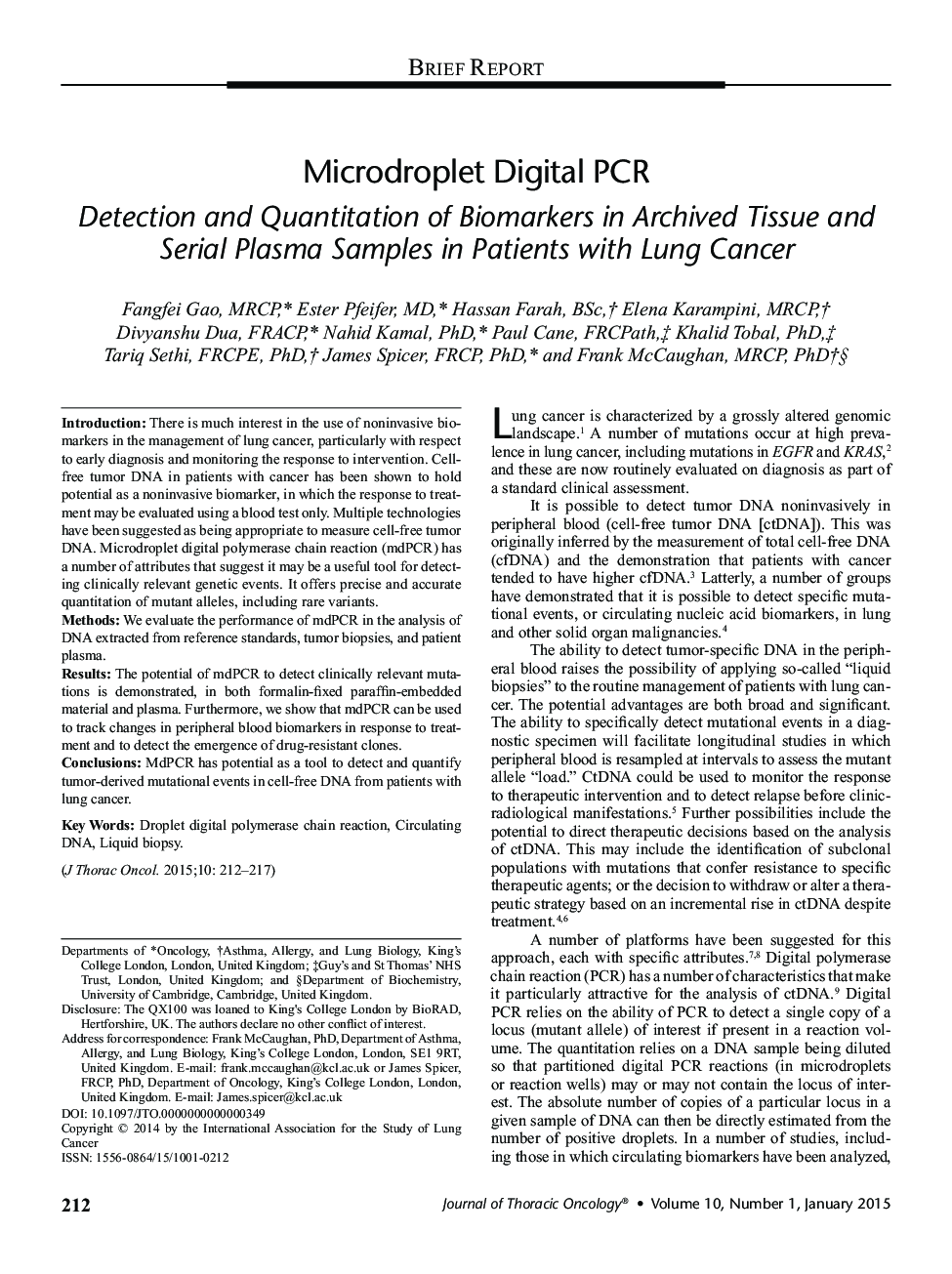| Article ID | Journal | Published Year | Pages | File Type |
|---|---|---|---|---|
| 6193299 | Journal of Thoracic Oncology | 2015 | 6 Pages |
IntroductionThere is much interest in the use of noninvasive biomarkers in the management of lung cancer, particularly with respect to early diagnosis and monitoring the response to intervention. Cell-free tumor DNA in patients with cancer has been shown to hold potential as a noninvasive biomarker, in which the response to treatment may be evaluated using a blood test only. Multiple technologies have been suggested as being appropriate to measure cell-free tumor DNA. Microdroplet digital polymerase chain reaction (mdPCR) has a number of attributes that suggest it may be a useful tool for detecting clinically relevant genetic events. It offers precise and accurate quantitation of mutant alleles, including rare variants.MethodsWe evaluate the performance of mdPCR in the analysis of DNA extracted from reference standards, tumor biopsies, and patient plasma.ResultsThe potential of mdPCR to detect clinically relevant mutations is demonstrated, in both formalin-fixed paraffin-embedded material and plasma. Furthermore, we show that mdPCR can be used to track changes in peripheral blood biomarkers in response to treatment and to detect the emergence of drug-resistant clones.ConclusionsMdPCR has potential as a tool to detect and quantify tumor-derived mutational events in cell-free DNA from patients with lung cancer.
